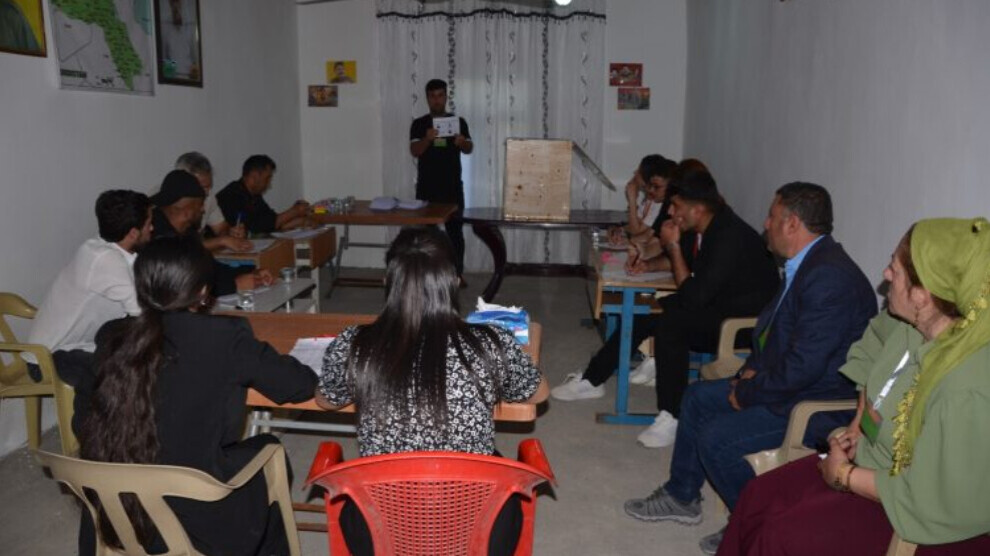Co-mayors of Maxmur elected
Edban Abdullah Yilmaz and Fatma Hilali were elected as co-mayors in the municipal elections in Martyr Rustem Cudi Refugee Camp (Maxmur).
Edban Abdullah Yilmaz and Fatma Hilali were elected as co-mayors in the municipal elections in Martyr Rustem Cudi Refugee Camp (Maxmur).

In Martyr Rustem Cudi Refugee Camp (Maxmur) in southern Kurdistan (northern Iraq), elections for co-mayors and council members are held every two years. Yesterday, the people of the camp went to the polls to elect co-mayors and council members.
Voting started at 08:00 in the morning in 8 constituencies and continued until late at night.
After the vote counting, Hadî Akêtî, Chairman of Maxmur Camp High Election Commission, made a statement.
Hadî Akêtî said, "We thank our people who went to the polls once again today for the continuity of our democratic nation system."
The election results were announced as follows:
"4336 people cast votes. Fatma Hilalî received 1989 votes, Nizar Hacı Teter Nerexî 1152, Edban Abdullah Yılmaz 2312 and Cemile Muhammed 1113 votes. According to these results, Fatma Hilalî and Adnan Abdullah Yılmaz were elected as co-mayors of the municipality.
In the elections for Municipal Council membership, the highest number of votes are as follows; Sedîq Hüseyin Hilalî 1205, Selman Mahmut Şiwêdî 1190, Sozdar Muhammed Tahir Hilalî 1070, Bahar Salih Bilehî 1059, Sabri Ahmet Mijînî 1039, Cehwer Cindî Nêrwehî 1034 and Leyla Abdullah Çelî 991 votes."
Maxmur Camp
Maxmur Camp is located around 60 kilometres south-west of Hewlêr, the capital of the Kurdistan Region of Iraq. More than 12,000 people live in the camp. Most of them were forced to leave their villages in the Botan region of northern Kurdistan in the 1990s due to repression by the Turkish state and the scorched-earth policy. After an odyssey lasting several years and stays in various camps, they founded the Maxmur Camp on the edge of the desert in 1998. The camp population thus forms the largest Kurdish refugee community in the world. Officially, Maxmur is under the protection of the UNHCR, but in practice the United Nations is only nominally present. The organisation left the camp during the attacks by ISIS in 2014 and never returned.